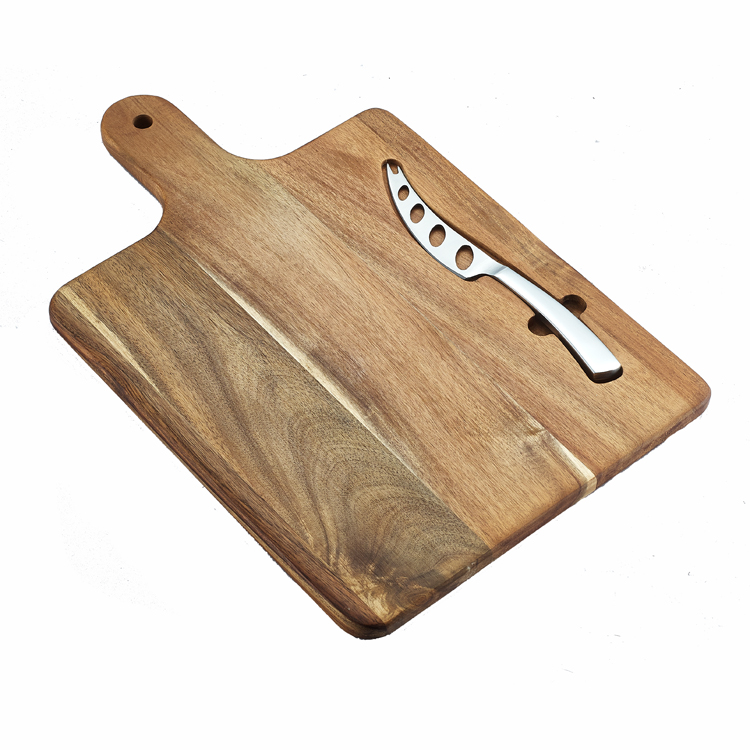Views: 290 Author: Site Editor Publish Time: 2025-11-17 Origin: Site











Content Menu
● Understanding Wooden Chopping Boards
>> The Benefits of Wooden Chopping Boards
>> The Natural Antimicrobial Properties of Wood
● Safety Concerns with Raw Meat
>> Risks of Cross-Contamination
>> Recommendations from Food Safety Experts
● Best Practices for Using Wooden Chopping Boards
>> Designating Boards for Specific Uses
>> Cleaning and Sanitizing Your Wooden Board
>> The Myth of Wood Harboring Bacteria
>> The Plastic vs. Wood Debate
Wooden chopping boards offer several advantages:
- Durability: With proper care, wooden boards can last for many years.
- Knife-Friendly: Wood is gentler on knife blades compared to harder surfaces, helping to maintain sharpness.
- Aesthetic Appeal: Wooden boards add a warm, natural look to your kitchen.
One of the unique characteristics of wood is its natural antimicrobial properties. Studies have shown that wood can inhibit the growth of certain bacteria, making it a safe option for food preparation when properly maintained.
The primary concern when using wooden chopping boards for raw meat is the risk of cross-contamination. Raw meat can harbor harmful bacteria such as Salmonella and E. coli, which can transfer to other foods if not handled properly. To mitigate this risk, it is essential to follow safe food handling practices.
Food safety experts recommend using separate cutting boards for different types of food. Ideally, you should have one board designated for raw meat and another for fruits, vegetables, and cooked foods. This practice helps prevent the transfer of harmful bacteria.
To ensure safety in the kitchen, designate specific boards for raw meat, vegetables, and cooked foods. Color-coded boards can help you remember which board to use for each type of food.
Proper cleaning and sanitization are crucial for maintaining the safety of your wooden chopping board.
1. Wash After Each Use: After using your board for raw meat, wash it immediately with hot, soapy water. Avoid soaking the board, as this can cause warping.
2. Sanitize: To sanitize your board, you can use a solution of one tablespoon of unscented bleach per gallon of water. Flood the surface with the mixture, let it sit for a few minutes, then rinse and dry.
3. Air Dry: Always air dry your wooden board in an upright position to prevent moisture from being trapped.
Regular maintenance is essential for prolonging the life of your wooden chopping board.
- Oiling: Apply food-safe mineral oil to your board every few weeks to keep it hydrated and prevent cracking.
- Sanding: If your board develops deep scratches or grooves, lightly sand the surface to remove them and restore its smoothness.
A common misconception is that wooden boards are inherently unsafe because they can harbor bacteria. While it is true that wood is porous, studies have shown that bacteria do not survive as long on wood as they do on plastic. Proper cleaning and maintenance can make wooden boards just as safe as plastic ones.
While plastic boards are often recommended for raw meat due to their non-porous nature, wooden boards can be just as safe if used correctly. The key is to ensure that you clean and sanitize your wooden board thoroughly after each use.
Using a wooden chopping board for raw meat can be safe if you follow proper food safety practices. By designating specific boards for different types of food, cleaning and sanitizing regularly, and maintaining your board, you can enjoy the benefits of wooden boards without compromising safety.

1. Can I use the same wooden board for raw meat and vegetables?
- It is best to use separate boards to prevent cross-contamination.
2. How often should I clean my wooden chopping board?
- Clean your board after each use, especially after cutting raw meat.
3. What is the best way to sanitize a wooden chopping board?
- Use a bleach solution or a mixture of vinegar and water to sanitize.
4. How can I tell if my wooden board needs to be replaced?
- If your board has deep grooves or cracks, it may be time to replace it.
5. Is it safe to put my wooden chopping board in the dishwasher?
- No, wooden boards should never be put in the dishwasher as it can cause warping and damage.